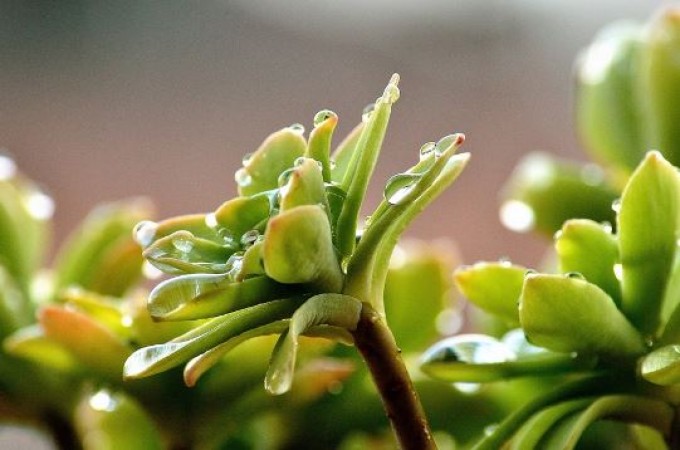
Plants require special attention during the rainy season to ensure their health and well-being. Excessive moisture, increased humidity, and limited sunlight can pose challenges to their growth. In this article, we will explore essential tips and techniques to help you care for your plants during the rainy season.
Embracing the Rainy Season
The rainy season brings relief from the scorching heat, rejuvenating the environment and promoting plant growth. However, it also brings challenges that can affect the health of your plants. By adopting the right practices, you can ensure your plants thrive even during this wet period.
Assessing the Plant's Needs
Every plant has unique requirements, and it's crucial to understand their needs. Consider factors such as sunlight tolerance, water requirements, and vulnerability to fungal infections. This knowledge will help you tailor your care routine accordingly.
Providing Adequate Drainage
Good drainage is essential to prevent waterlogging, which can lead to root rot and other diseases. Ensure your pots have drainage holes and use well-draining soil to facilitate water flow. Additionally, place a layer of gravel or small stones at the bottom of the pot to improve drainage.
Preventing Waterlogging
To prevent waterlogging, avoid placing pots in areas prone to water accumulation, such as low-lying spots or areas without proper drainage. If heavy rain is expected, consider elevating your pots using bricks or stands to allow excess water to drain away.
Adjusting Watering Frequency
During the rainy season, plants receive a significant amount of water from rainfall. Adjust your watering frequency accordingly and monitor the moisture levels in the soil. Only water when the top inch of soil feels dry to the touch.
Shielding Plants from Heavy Rainfall
Heavy rainfall can be detrimental to plants, causing damage to leaves, flowers, and fragile stems. Protect your plants by providing shelter using umbrellas, canopies, or garden covers. This will shield them from the direct impact of rain and minimize any potential harm.
Promoting Air Circulation
Increased humidity during the rainy season can create a favorable environment for fungal infections. Promote air circulation by spacing out your plants and avoiding overcrowding. This allows the foliage to dry out faster and reduces the risk of diseases.
Controlling Fungal Infections
Fungal infections are common during the rainy season. To prevent and control these infections, apply organic fungicides or neem oil to susceptible plants. Regularly inspect your plants for signs of fungal growth, such as yellowing leaves or powdery mildew, and take prompt action.
Avoiding Overwatering
While it's essential to provide adequate water, overwatering can harm your plants. Monitor the moisture levels in the soil and avoid excessive watering. Excess water can suffocate the roots and lead to root rot or other water-related diseases.
Protecting Plants from Pests
The rainy season often brings an increase in pest activity. Inspect your plants regularly for signs of pests, such as aphids or snails. Use organic pest control methods or introduce beneficial insects to keep pest populations in check.
Fertilizing Appropriately
Rainwater can leach nutrients from the soil, affecting plant health. Supplement your plants with appropriate fertilizers to replenish essential nutrients. Opt for slow-release fertilizers or organic options to provide a steady and balanced nutrient supply.
Pruning and Trimming
Trimming and pruning your plants during the rainy season can help maintain their shape and prevent the growth of mold or mildew. Remove dead or diseased branches, and trim back overgrown foliage to improve airflow and overall plant health.
Maintaining Indoor Plants
Indoor plants are also affected by the rainy season, although in different ways. Ensure proper ventilation in your indoor spaces to prevent excess humidity. Adjust watering frequency based on the plant's needs, and wipe down leaves to remove excess moisture.
Protecting Delicate Plants
Delicate plants, such as orchids or sensitive herbs, require extra care during the rainy season. Move them to covered areas or indoors to shield them from heavy rainfall. Alternatively, use transparent plastic sheets or cloches to create individual protective covers.
Caring for plants during the rainy season requires attention to detail and proactive measures. By assessing each plant's needs, ensuring proper drainage, adjusting watering frequency, and taking steps to protect them from excessive rain and pests, you can help your plants thrive even in wet conditions.
The Glass Armonica: Unveiling the Enchanting Sounds of Glass Music
Rupee Charges Ahead: Indian Currency Surges 6 Ps USDollar, Reflecting Investor Confidence
23 Airports Set for Major Upgrades to Boost Traffic and Elevate Travel Experience